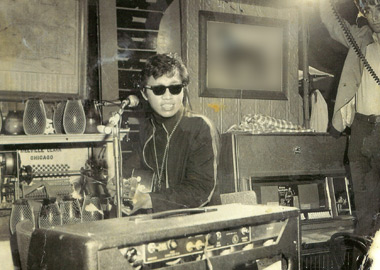Once in a while, a film comes along that you simply cannot not see. These films speak to some period of your life on such a gut level that, even if they’re flawed, seeing them becomes a kind of trip to wonderland, where time bends back on itself, allowing you to revisit your past and reflect on your present. For some it may be a film about addiction, or family tragedy, or young love. This week, for me, that film is about a man from Detroit.
Searching for Sugar Man is the story of Sixto Rodriguez, a Mexican-American singer-songwriter whose career seemed to stall out around the time of Watergate before undergoing a remarkable late-act resurrection. Falling somewhere between Cat Stevens and Bob Dylan on the musical spectrum, Rodriguez was discovered in a Detroit bar and made two albums in the early 1970s—which promptly disappeared. The label itself followed a few years later, and Rodriguez returned to the demolition and home renovation work that paid the bills. So complete was his disappearance that rumors began to spread about an onstage suicide.
But while Rodriguez was hanging drywall, something incredible was happening far from Detroit. Somehow a bootleg of his album Cold Fact had found its way to South Africa, where its streetwise lyrics sounded a call to revolution among young dissidents battling apartheid. To them, he was the prophet, not Dylan. So enduring was his legacy there that when, two decades later, a friend of mine spent a year abroad in a South African high school, students were still passing around dubbed tapes of the album. He sent one back to me in the States, and I was hooked. We knew almost nothing about Rodriguez—this was before the Internet, of course—but it wasn’t long before we were passing around tapes of our own. Another two decades later, we still talk about him.
In South Africa, that wasn’t enough for some fans. In 1997, Cape Town resident Stephen “Sugar” Segerman (“Sugar Man” is the title of Rodriguez’s best-known song) started a website devoted to tracking down the legendary musician—a shot in the dark that paid off when Rodriguez’s daughter contacted Segerman to let him know that her father was indeed quite alive. Soon afterward, Rodriguez was playing a handful of concerts in South Africa to thousands of adoring fans. Searching For Sugar Man director Malik Bendjelloul met Segerman a few years later, and after introducing friends to the music decided to expand the story into a film.
It’s a magical tale, but not one without hardship. During those years of back-breaking labor in Detroit, Rodriguez’s albums were being pressed as fast as possible abroad. It’s estimated that somewhere near a million albums were sold in South Africa, but none of the proceeds ever found its way to his pocket. Instead, he labors on, a working man still singing about the messages that have always remained the same, however much the world around him may have changed.
*
Also this week: Another music/film crossover comes to Amherst Cinema on October 18th with Deconstructing Sgt. Pepper, a multimedia exploration of the landmark album by Beatles scholar Scott Freiman. Described by Rolling Stone as “the most important rock & roll album ever made,” Sgt. Pepper’s Lonely Hearts Club Band is a rich tapestry that seems even richer under Freiman’s microscope. In his presentation, he uses rare and unreleased recordings to trace a song from early drafts to final construction, isolating audio tracks, instrumental features and vocal harmonies along the way to highlight various aspects of the Beatles’ artistry. For fans or just curious music lovers, it’s a fascinating peek behind the curtain.
Jack Brown can be reached at cinemadope@gmail.com



